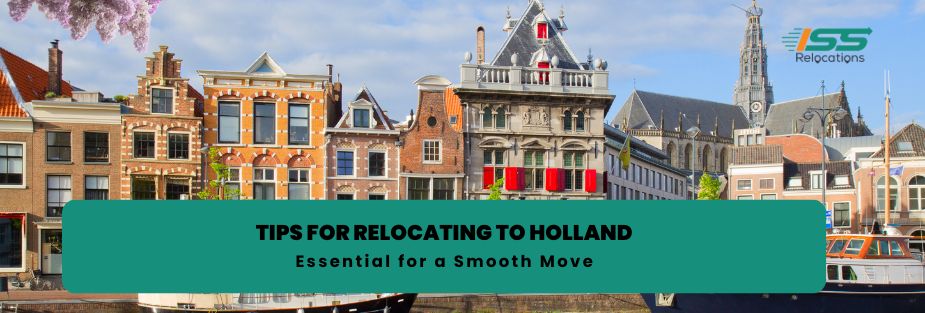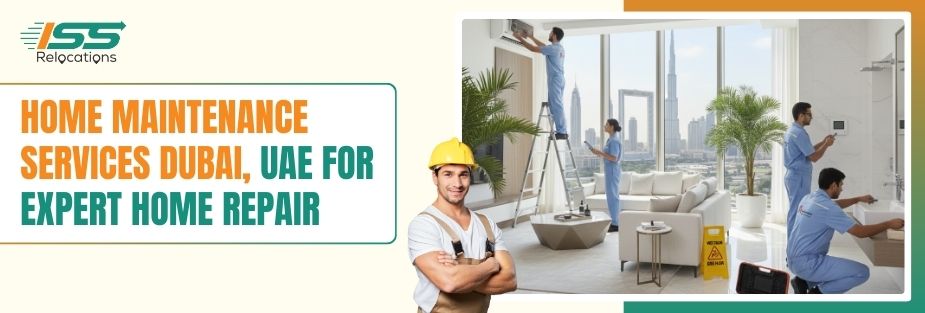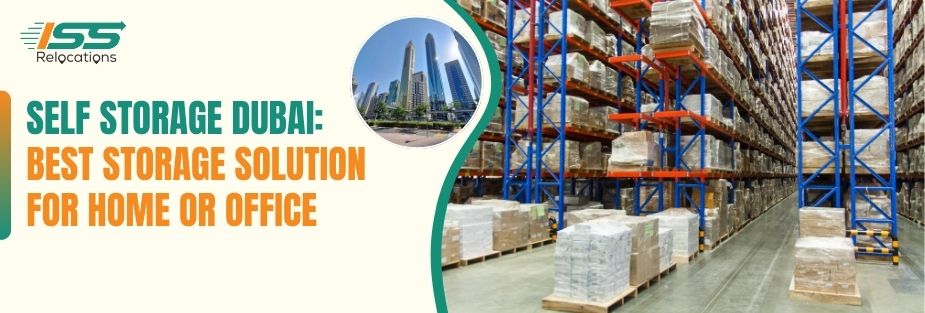
Tips for Relocating to Holland: Essential for a Smooth Move
Relocating to Holland is an exciting opportunity to experience a unique blend of vibrant culture, stunning landscapes, and a thriving economy. Holland, the western region of the Netherlands, is well-known for its picturesque canals, windmills, and rich history. Whether you’re moving for work, study, or a new adventure, understanding the steps involved in relocating to Holland will ensure a smooth transition.
With its excellent public infrastructure, top-notch healthcare, and welcoming expat community, Holland is a popular destination for individuals and families alike. However, like any major move, thorough preparation is essential to avoid potential challenges. In this guide, we’ll explore all the critical aspects you need to consider before making the move—from finding the right relocation service to adjusting to life in this charming country.
Relocating To Holland?
Plan smart and settle in without the stress!
Why Choose ISS Relocations for Relocating to Holland?
When it comes to relocating to Holland, choosing a trusted and reliable relocation partner can make all the difference. ISS Relocations offers a comprehensive suite of services tailored specifically for expats, ensuring every aspect of your move is handled with care and precision. From packing your belongings to helping you settle into your new home, ISS takes the hassle out of international moves.
Comprehensive Relocation Services
ISS Relocations provides an all-inclusive package to manage every detail of your move. Their team coordinates every stage, including international shipping, customs clearance, and even temporary storage solutions if required. Whether you’re moving from a neighboring country or across the globe, ISS ensures that relocating to Holland is seamless and stress-free. They offer flexible plans based on your specific needs, from full-service moves to basic transportation assistance.
Hassle-Free Shipping Options
Transporting your belongings can be one of the most daunting aspects of relocating to Holland. ISS Relocations offers multiple shipping options—air, sea, and land—to suit your timeline and budget. They handle all the paperwork involved in customs, ensuring that your items arrive safely and on time. With their extensive network of partners and experience in global logistics, ISS can guarantee that your move will go as smoothly as possible.
Settling Support for Expats
Beyond moving your physical belongings, ISS Relocations provides critical support to help you settle into your new life in Holland. This includes finding the perfect housing, assisting with local registration processes, and even helping your children enroll in school. Their experts offer guidance on integrating into Dutch society, making the transition to life in Holland much easier.
By choosing ISS Relocations, expats gain access to local expertise and personalized support, ensuring that relocating to Holland is a positive experience from start to finish.
Preparing for Your Move to Holland
Relocating to Holland involves more than just packing your bags. To ensure a smooth transition, it’s essential to take care of several practical and legal matters before your move. This section will walk you through the key aspects to consider, from gathering the necessary documents to understanding the housing market and the Dutch healthcare system.
Essential Documents for Relocation
Before relocating to Holland, make sure you have all the required documentation in place. This includes your passport, visa, work permits, and other important paperwork like your employment contract and health insurance. If you’re an EU citizen, moving to the Netherlands is relatively straightforward, requiring little more than registration with the local municipality. However, if you’re a non-EU national, you’ll need to secure a residence permit. ISS Relocations can assist you with this process, ensuring that all your legal requirements are met before you arrive in the country.
For those relocating to Holland with families, make sure to arrange school records and vaccination documents for your children. Additionally, having copies of your financial and medical records can simplify administrative processes once you’ve settled in.
Housing in the Netherlands: What You Should Know
The Dutch housing market can be competitive, especially in cities like Amsterdam, Rotterdam, and The Hague. Start your housing search early, as demand often exceeds supply, particularly for affordable rentals. Many expats find that housing prices in Holland are higher than expected, especially in central urban areas.
There are several housing options available, including apartments, houses, and even shared accommodations. Depending on your preferences and budget, you may also explore short-term rentals while you search for a more permanent place to live. When relocating to Holland, ISS Relocations can assist you with securing a rental property that fits your needs, offering insights into the most expat-friendly neighborhoods.
Dutch Healthcare System and Insurance
One of the most important steps when relocating to Holland is securing health insurance. The Dutch healthcare system is among the best in the world, but health insurance is mandatory for all residents, including expats. Within four months of arriving, you must register with a Dutch health insurance provider. Failure to do so can result in fines.
Dutch health insurance plans cover general medical care, but you may need to purchase additional coverage for dental or other specialized services. ISS Relocations can provide guidance on selecting the right insurance plan, ensuring you have access to quality healthcare from the moment you arrive.
Speak With An Advisor!
Adapting to Life in Holland
Once you’ve completed the initial steps of your relocation, it’s time to focus on settling into your new life. Holland has much to offer expats, from its high quality of life to its inclusive and welcoming culture. However, adapting to a new country comes with its own set of challenges. This section will help you navigate Dutch culture, language, and finances to make your adjustment as smooth as possible.
Understanding Dutch Culture and Lifestyle
Dutch culture is known for its emphasis on direct communication, practicality, and a strong sense of community. One of the first things you’ll notice after relocating to Holland is the nation’s deep cycling culture. The Dutch rely heavily on bicycles for transportation, and you’ll find extensive bike lanes in every city.
The work-life balance in Holland is another key feature, with most Dutch employees enjoying shorter workweeks and generous vacation days. Socializing is often casual, with locals enjoying time at cafes or outdoor activities like boating and walking through parks. Integrating into Dutch society is relatively easy for expats, but it helps to embrace local customs and participate in community events.
Learning Dutch: Is It Necessary?
While English is widely spoken in Holland, learning some Dutch can significantly enhance your experience. Basic knowledge of the language will help you navigate daily life more easily, especially when dealing with official paperwork or making local connections. Many expats take advantage of free or low-cost Dutch language courses offered by municipalities to help them settle in.
If you’re relocating to Holland for work, some employers might offer language classes to help you and your family integrate more effectively. Although you can get by without speaking Dutch, learning the language is a sign of respect and can deepen your connection to your new home.
Navigating Dutch Taxes and Finances
Understanding the Dutch tax system is crucial for anyone relocating to Holland. Taxes in the Netherlands are generally higher than in many other countries, but they support an excellent infrastructure, public services, and social benefits. Expats who are employed in the Netherlands may qualify for the 30% ruling, a tax exemption that allows them to receive 30% of their gross salary tax-free for a limited period.
Additionally, setting up a Dutch bank account should be a priority after your arrival, as it will make paying rent, bills, and taxes much easier. You’ll need your BSN (Citizen Service Number) to open an account, which you can obtain upon registering with the local municipality.
By understanding and planning for these financial aspects ahead of time, you can ensure a more seamless transition when relocating to Holland.
Legal and Administrative Must-Knows
When relocating to Holland, there are several legal and administrative steps to follow to ensure compliance with local laws. From registering with the municipality to obtaining a Citizen Service Number (BSN), it’s important to be prepared for these requirements upon arrival.
Registration with the Dutch Municipality
Once you arrive in Holland, you must register with the local municipality (gemeente) within five days. This is mandatory for anyone planning to stay for longer than four months. Registration provides you with an official address and is essential for obtaining a BSN. Without completing this process, many other administrative tasks, such as opening a bank account or enrolling in health insurance, will be difficult.
Acquiring a BSN (Citizen Service Number)
After registering, you will receive your BSN, which acts as your official identification number in Holland. The BSN is necessary for almost all aspects of life, including paying taxes, accessing healthcare, and setting up utilities. Make sure this process is completed promptly to avoid delays in accessing essential services after relocating to Holland.
Dutch Visa and Residency Permits
For non-EU nationals, securing the right visa or residency permit is crucial before relocating to Holland. Depending on the reason for your move (work, study, or family), you’ll need to apply for the appropriate visa. ISS Relocations can assist with navigating the visa process, ensuring all documentation is in order before your move.
What to Expect After Relocating to Holland
After completing the initial steps of your move, it’s time to settle into everyday life in Holland. While this can be an exciting phase, there are also adjustments you’ll need to make as you integrate into Dutch society.
Cost of Living Adjustments
The cost of living in Holland can be higher than many expats anticipate, particularly in cities like Amsterdam and Utrecht. Housing is often the largest expense, and rental prices in central areas can be steep. However, there are more affordable options in the outskirts or smaller towns. In addition to rent, utilities, groceries, and transportation costs should be factored into your budget when relocating to Holland.
Overcoming Common Expat Challenges
One of the most common challenges for expats relocating to Holland is adjusting to the local bureaucracy. While the Dutch government is efficient, the amount of paperwork required can feel overwhelming at first. Homesickness and cultural differences can also take some getting used to. Fortunately, Holland has a large and welcoming expat community that offers plenty of support to newcomers.
Making Holland Feel Like Home
Building a social network is key to making your new life in Holland feel more comfortable. Many cities have expat clubs, and there are numerous events and meetups specifically designed to help international residents connect with others. Participating in local traditions, like King’s Day and Sinterklaas, can also help you feel more integrated into Dutch culture. For families, enrolling children in local schools or international programs can create a sense of stability after relocating to Holland.
Wrapping Up
Relocating to Netherlands can be an incredibly rewarding experience, but like any international move, it requires thorough preparation. From securing the right documentation to navigating the Dutch housing and healthcare systems, ensuring all aspects of your relocation are handled properly will make your transition smoother. By partnering with ISS Relocations, you can feel confident that your move will be in expert hands. With comprehensive services designed to cater to expats, ISS Relocations makes relocating to Holland a seamless and positive journey.
Plan Stress-free Move with Top Moving Company in UAE - ISS Relocations

Frequently Asked Questions
Is Holland a good place to live?
Yes, Holland is a great place to live! It offers a high quality of life, excellent healthcare, and a strong work-life balance. Holland is also known for being expat-friendly, with a welcoming community and many English-speaking residents.
What taxes do you pay in Holland?
After relocating to Holland, you will be subject to Dutch income tax. The rate is progressive, with higher earners paying higher rates. Expats may be eligible for the 30% ruling, a tax exemption that can provide financial relief. Other taxes include VAT (value-added tax) and social security contributions.
How much money do you need to immigrate to Holland?
The amount you need depends on various factors, such as whether you’re buying or renting property, your visa type, and your family size. On average, expats should budget for housing deposits, moving costs, and at least three months’ worth of living expenses after relocating to Holland.
What is the downside of moving to Holland?
While Holland offers many benefits, some downsides include the high cost of living, particularly in major cities, and unpredictable weather. Additionally, dealing with Dutch bureaucracy and paperwork can be frustrating at times.
Is Holland friendly to expats?
Yes, Holland is very friendly to expats. English is widely spoken, and many Dutch cities have vibrant expat communities. Holland also has a variety of resources and services designed specifically to help expats settle in and thrive.
How hard is it to immigrate to Holland?
Immigrating to Holland requires meeting visa requirements and securing housing, but with the right assistance, it can be straightforward. ISS Relocations provides tailored solutions to make relocating to Holland a seamless experience.
Is Holland friendly to foreigners?
Yes, Holland is very welcoming to foreigners, with a multicultural society and English widely spoken. ISS Relocations ensures a stress-free relocation to Holland, offering comprehensive support to help you settle in quickly.
Moving Company - Recent Blog
Stay informed and prepared for your next move with our latest blogs on moving services in the UAE. From expert packing tips to international relocation guides, ISS Relocations brings you up-to-date insights to make your moving experience smoother, safer, and stress-free.










